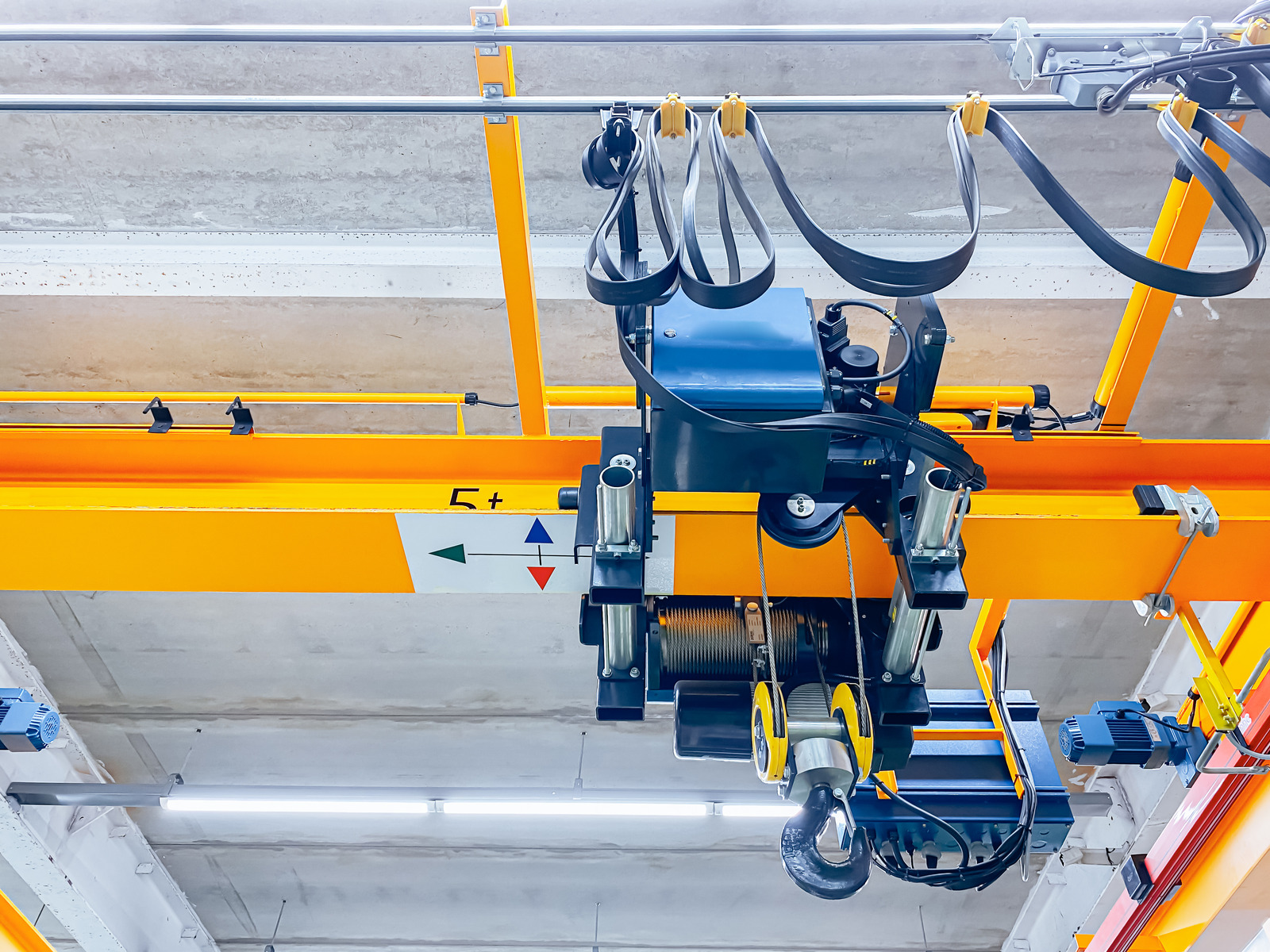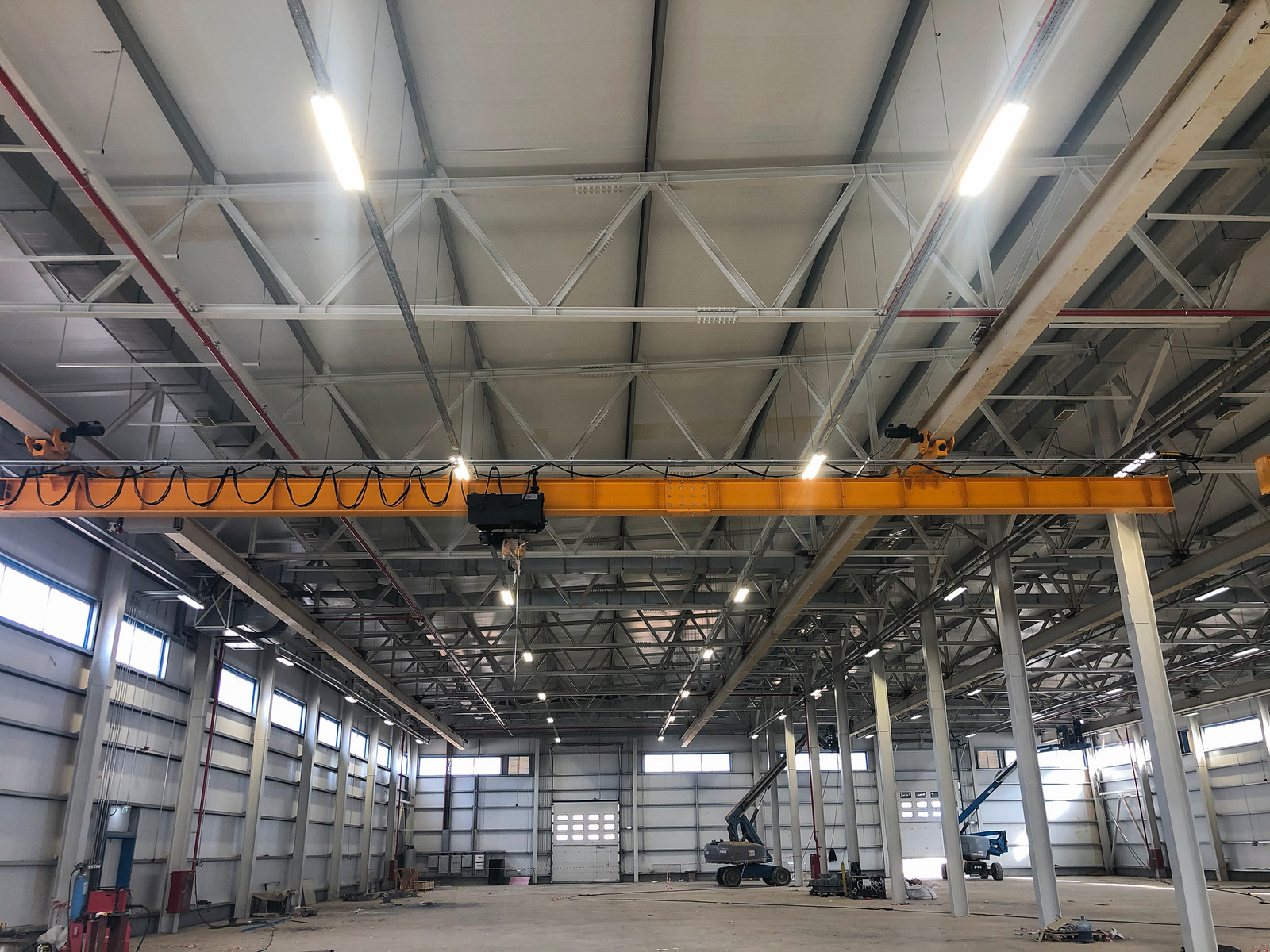Hoists and winches for general and special purposes
2892
Registered participants
- Training tailored to client's needs
- Training at the client's location
- Open training at our location - if you have few employees, join us!
Hoists and winches for general and special purposes

ERGON Company cordially invites you to the training for crane, winch, and hoist operators, both for general and special purposes. This course is designed for individuals looking to enhance their professional qualifications or switch careers. We will assist you in passing the UDT exam and obtaining the qualifications required to work independently as an operator of these devices. We are a company with extensive experience in conducting professional courses and follow programs approved by the Technical Inspection Authority.
Training Objective
Obtaining professional qualifications in the operation and maintenance of Close Proximity Transport Equipment (CPTE), such as cranes, winches, and hoists for general and special purposes, and preparing participants for the UDT exam.Where Can I Work After the Course?
Operators of these types of equipment can find employment in various places, including:- production halls,
- shipyards,
- construction sites,
- industrial areas,
- warehouses,
- transport companies,
- logistics companies.
Winches and Hoists - Characteristics
 Cranes are lifting devices that operate in intermittent motion. They can transport goods both vertically and horizontally. They are constructed with a supporting structure that moves on running tracks. Winches and hoists are typically part of crane equipment. The following are some types of general-purpose cranes:
Cranes are lifting devices that operate in intermittent motion. They can transport goods both vertically and horizontally. They are constructed with a supporting structure that moves on running tracks. Winches and hoists are typically part of crane equipment. The following are some types of general-purpose cranes:
- column,
- semi-gantry,
- gantry,
- overhead,
- modular,
- cantilever.
- forging,
- ladle,
- stripper,
- grab,
- bucket,
- traversing,
- gripper,
- clamp,
- hook.
- operation mode - automatic, cabin-controlled, remote-controlled, working level-controlled,
- drive type - electric, electric-manual, manual, pneumatic, hydraulic.
Training Topics
- information on technical inspection regulations,
- general information on Close Proximity Transport Equipment,
- stability concept of the equipment,
- load capacity characteristics,
- equipment structure,
- crane operation,
- types of cranes,
- crane markings,
- hydraulic, electric, and pneumatic equipment,
- protective devices,
- operator tasks before starting work,
- operator tasks after completing work,
- working with assistants,
- Occupational Health and Safety rules,
- Fire Protection regulations,
- procedures in specific working conditions,
- mechanics and electrics basics,
- actions in emergency situations,
- winch operation,
- running gear elements,
- suspensions and auxiliary handling equipment.
What Does the Training Involve?
Our training consists of:- theoretical part – where participants acquire knowledge regarding the construction, operation, and maintenance of the discussed equipment. These classes are led by knowledgeable individuals with expertise in the operation of these devices. Participants receive professionally prepared training materials from us;
- practical part – conducted by experienced instructors. Equipment that meets all technical inspection requirements is used during these classes.
Exam and Qualifications
After completing the training, participants take an exam conducted by the UDT commission. If they receive a positive result, they obtain qualifications for operating or maintaining cranes, winches, and hoists for general and special purposes. The validity of the qualification certificate, allowing them to work in this profession, is 5 years. There is an option to extend the validity period by meeting two conditions:- submitting an extension request (to the nearest UDT unit) 3 months before the expiration date,
- working in the profession for a minimum of 3 years within the 5-year validity period of the certificate.
Training Participation Requirements
- legal age,
- completion of primary or middle school education,
- good health condition confirmed by a company doctor.
Location
We have training centers throughout Poland. Additionally, upon the client's request, we are ready to conduct training at the client's workplace, located anywhere in Poland.Our Training Courses
In our offer, we also have courses preparing participants for work as operators and maintainers of:- cranes, winches, and hoists for general purposes,
- forklifts,
- mobile platforms,
- HDS cranes,
- tower cranes,
- excavators,
- backhoe loaders.
Questions and Answers
Where can I work after completing the course?
Operators and maintainers of cranes, winches, and hoists can find employment on construction sites, in production halls, logistics companies, warehouses, and shipyards, among other places.
What does a crane operator do?
A crane operator, after assessing the weight of the load correctly, transports it to the desired location using the crane's hoist. They also cooperate with a signal person throughout their work.
What is the validity period of the qualifications obtained from this course?
The validity period of the UDT qualification certificate, allowing work with cranes, winches, and hoists for general and special purposes, is 5 years.
Do I need technical education to enroll in the course?
No, completing primary or middle school education is sufficient.
